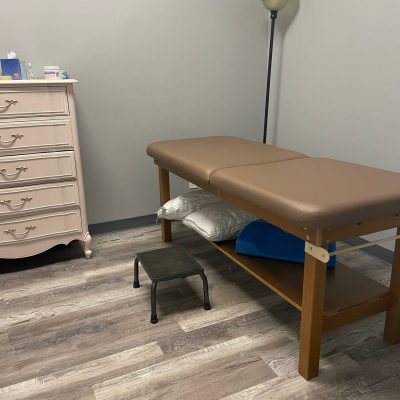The pelvic floor is a group of muscles and tissues that support the bladder, uterus, and rectum in women. These muscles play an important role in maintaining continence, sexual function, and overall pelvic health. However, various factors such as pregnancy, childbirth, and aging can weaken the pelvic floor muscles, leading to conditions such as urinary incontinence and pelvic organ prolapse.
One of the factors that can affect the pelvic floor muscles is the use of contraceptives. Contraceptives are medications or devices that prevent pregnancy by either inhibiting ovulation, blocking fertilization, or preventing implantation of a fertilized egg. While contraceptives are generally safe and effective, they can have various side effects, including those that affect the pelvic floor.
Hormonal contraceptives, such as the birth control pill, contain synthetic hormones that prevent ovulation by suppressing the release of follicle-stimulating hormone (FSH) and luteinizing hormone (LH) from the pituitary gland. These hormones are essential for the growth and maturation of ovarian follicles, which eventually lead to ovulation. By inhibiting ovulation, hormonal contraceptives prevent fertilization and pregnancy.
However, the synthetic hormones in hormonal contraceptives can also affect the pelvic floor muscles. Studies have shown that hormonal contraceptives can cause changes in the vaginal tissue, such as thinning of the epithelial lining and decreased vaginal lubrication. These changes can affect the elasticity and strength of the pelvic floor muscles, leading to pelvic floor dysfunction.
For example, hormonal contraceptives have been linked to an increased risk of urinary incontinence, which is the involuntary leakage of urine. A study published in the Journal of Urology found that women who used hormonal contraceptives were more likely to report urinary incontinence compared to those who did not use contraceptives. The study suggested that the hormonal changes caused by contraceptives may affect the urethral sphincter, a muscle that helps control the flow of urine from the bladder.
In addition to hormonal contraceptives, certain types of intrauterine devices (IUDs) can also affect the pelvic floor muscles. IUDs are small, T-shaped devices that are inserted into the uterus to prevent pregnancy. While IUDs are generally safe and effective, they can cause cramping and discomfort during insertion and removal.
Some women may also experience pelvic pain or discomfort with an IUD, which can be caused by the device pressing against the pelvic floor muscles or nerves. A case study published in the Journal of Women’s Health Physical Therapy found that women who used IUDs had higher levels of pelvic pain and muscle tenderness compared to those who did not use IUDs. The study suggested that the pressure and irritation caused by the IUD may contribute to pelvic floor dysfunction.
However, it’s important to note that not all contraceptives have negative effects on the pelvic floor. Barrier methods, such as condoms and diaphragms, do not contain hormones and do not affect the pelvic floor muscles. In fact, using a barrier method during sex can help strengthen the pelvic floor muscles by providing resistance and promoting blood flow to the area.
If you are experiencing unwanted side effects of contraceptives, Pelvic Floor Therapy can help! Pelvic Floor Therapy helps reduce pain in the pelvic floor muscles and nearby muscles. A Pelvic Floor therapist can help teach you how to appropriately relax and contract the muscles and how to coordinate these muscles with the deep core, hips, and low back. A Pelvic Floor Therapist should look at your entire body, including posture and gait, because distal joints play a role in how the pelvic floor is functioning. Pelvic Floor Therapy can help normalize any unwanted bladder and bowel symptoms including bladder leakage, overactive bladder, nocturia, Interstitial Cystitis, constipation, and fecal leakage.
Our clinic is conveniently located in Hoover, Alabama, near the Galleria. We have experienced clinicians with advanced training in the treatment of Pelvic Floor disorders. Contact us to schedule an appointment!
Champaneria R, D’Andrea RM, Latthe PM. Hormonal contraception and pelvic floor function: a systematic review. Int Urogynecol J. 2016 May;27(5):709-22. doi: 10.1007/s00192-015-2833-3. Epub 2015 Sep 25. PMID: 26407563.
Townswend MK, Curhan GC, Resnick NM, Grodstein F. Oral Contraceptive Use and Incident Urinary Incontinence in Premenopausal Women. Journal of Urology. 2009.01.040
Volpe ET. Intrauterine Devices, Pelvic Pain, and Physical Therapy: A Case Report. Journal of Women’s Health Physical Therapy, Volume 46, Number 4, October/December 2022, 183-189(7).







